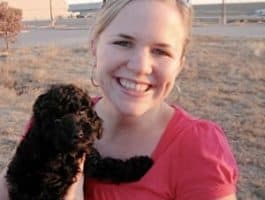
Wise Counsel for the Teen Years
Grab a paddle and hang onto your hat! All this week on the broadcast, experienced parents Dennis and Barbara Rainey, along with son Samuel and daughter Rebecca, talk about riding the rapids of adolescence with your teens.
Show Notes
About the Host
About the Guest
-
Grab a paddle and hang onto your hat! All this week on the broadcast, experienced parents Dennis and Barbara Rainey, along with son Samuel and daughter Rebecca, talk about riding the rapids of adolescence with your teens.
-
Dave and Ann Wilson
Dave and Ann Wilson are hosts of FamilyLife Today®, FamilyLife’s nationally-syndicated radio program. Dave and Ann have been married for more than 38 years and have spent the last 33 teaching and mentoring couples and parents across the country. They have been featured speakers at FamilyLife’s Weekend to Remember® marriage getaway since 1993 and have also hosted their own marriage conferences across the country. Cofounders of Kensington Church—a national, multicampus church that hosts more than 14,000 visitors every weekend—the Wilsons are the creative force behind DVD teaching series Rock Your Marriage and The Survival Guide To Parenting, as well as authors of the recently released book Vertical Marriage (Zondervan, 2019). Dave is a graduate of the International School of Theology, where he received a Master of Divinity degree. A Ball State University Hall of Fame quarterback, Dave served the Detroit Lions as chaplain for 33 years. Ann attended the University of Kentucky. She has been active alongside Dave in ministry as a speaker, writer, small-group leader, and mentor to countless wives of professional athletes. The Wilsons live in the Detroit area. They have three grown sons, CJ, Austin, and Cody, three daughters-in-law, and a growing number of grandchildren.
-

Dennis and Barbara Rainey
Dennis and Barbara Rainey cofounded FamilyLife®, a ministry of Cru®. Their 43+ years of leadership enabled FamilyLife to grow into a dynamic and vital ministry in more than 109 countries. Together they have spoken at over 150 Weekend to Remember® marriage getaways and authored or co-authored more than 35 books, including best-selling Moments Together for Couples, Staying Close, A Symphony in the Dark, and Barbara’s most recent, Letters to My Daughters: The Art of Being a Wife...more
Rebecca (Rainey) Mutz
Rebecca (Rainey) Mutz and her husband Jake live in Colorado with their children. Besides writing, she loves to cook, bake, decorate, read, and enjoy the beauty of the great outdoors. Rebecca shares openly shares the story of her grief, healing, and hope in regards to her children Molly Ann, Micah William, and two others lost through miscarriage. Jake and Rebecca Mutz hope to use their daughter Molly’s life as a way to share Christ with others and bring glory to God. Rebecca co-authored a boo...moreSamuel Rainey
Samuel Rainey is a professional counselor primarily working with couples, men, and women addressing issues of sexuality, emotional health, relationships, and spirituality. He is the co-Author of So You Want to be a Teenager with Thomas Nelson. He earned his Masters in Counseling Psychology from The Seattle School of Theology and Psychology in Seattle, Washington. When he is not roasting coffee, tending to his garden, or playing golf, he blogs about life process, parenting, and relationships at S...more
Grab a paddle and hang onto your hat!
Wise Counsel for the Teen Years
Teen: Hey, Dad? Don't you think we should put our life jackets on?
Dad: Ah, the river is real calm here.
Teen: But, Dad, what about those rapids the river guide told us about?
Dad: Well, we've got plenty of time. Isn't it great here? You know, son, when you're riding down the river of life, you've got good times and hard times. This happens to be one of those good times – sort of calm.
Teen: Like the calm before the storm?
Dad: Nah, you're a good boy. You've always been easy. That's what we've always called you – "Easy Eddie."
Teen: Dad, what's that sound?
Dad: Huh? I don't know.
Teen: Dad, what's that sign mean?
Dad: What sign?
Teen: That one – "Warning, Puberty Point, Golden Years Ending, Adolescent Rapids Ahead."
Dad: Don't worry about it, we're not quite there yet. I mean, you're only 12, right?
Teen: Dad.
Dad: Right?
Teen: Dad, that sound.
Dad: Yeah, what is that?
Teen: I think it's …
Dad: Oh, no, it's the rapids!
Teen: I thought you said we weren't there yet!
Dad: We are there! Get your life jacket on!
Teen: Where is it?
Dad: Oh, no, I left them back at the dock! Hang on!
Bob: This is FamilyLife Today for Monday, June 18th. Our host is the president of FamilyLife, Dennis Rainey, and I'm Bob Lepine. All right, get your life jackets on, get your paddles ready, there are rapids ahead. Stay tuned.
And welcome to FamilyLife Today, thanks for joining us on the Monday edition. I don't know if you've approached the rapids yet or not. There's something about the difference, Dennis, between the way parents approach the oncoming rapids of the teen years and the way the kids approach the oncoming rapids of the teen years.
Dennis: Do you think? Do you think there's a difference?
Bob: The kids are going, "Hey, this is going to be fun, this is going to be a blast. I can hardly wait," and the parents are going, "This is scary and dangerous, and I don't like it."
Dennis: Could we put these rapids off for a few miles?
Bob: Or a few years?
Dennis: That's exactly right, and there's a reason for that. You know, you look at the culture, movies and music, magazines, television, you have the ominous presence that's increasing all the time of the Internet, its chat rooms, pornography, issues of dressing and modesty for our daughters and our sons. There's peer pressure, then there's dating and sex and drugs and alcohol and on and on it goes. And if there was ever a time a group of parents needed wisdom as they approach the rapids, as they approach the teenage years to prepare their sons or daughters for those rapids, it's today.
Bob: I know where you got that list. You got out your copy of "Parenting Today's Adolescents," and you just read through all the traps that you and Barbara wrote about in the book.
Dennis: That's wrong, Bob, you completely miscalled that. You usually bat 800 or 900, but you missed that one. I just reviewed what we've been dealing with for the past 24 hours with our teenagers.
Bob: Didn't have to get out the book, did you?
Dennis: I didn't. We've had six teenagers at one time or another, and I'm going to tell you, these issues today I believe – well, I think they're more relevant than ever before, and I think the – I think the verse I want to focus on is Proverbs 24, verse 3, "By wisdom a house is built." I'm going to stop right there, because this wisdom that we're talking about is from above. It's not human wisdom, it is the wisdom of the Scriptures, and if there was a time when parents needed God's wisdom, it's today.
Bob: Some of that wisdom that you've received from the Scriptures has come not directly from the Scriptures but from the woman who is seated to your right in the studio today.
Dennis: Yes, God has given me many gifts, but other than salvation, the best gift He has ever given me is my bride of almost 30 years, and even as I introduced her and applauded her as a gift, across the table there was one who threw up his arms going, "What about me?"
Samuel: Yes.
Dennis: "Am I not a good gift?" And I must say to you, son, you were a great gift, but my wife is a better gift than you, okay? And I think that's the way it should be.
Bob: I think so, too. We have Barbara Rainey joining us in the studio today. Barbara, welcome to FamilyLife Today.
Barbara: Thank you, Bob.
Bob: And we also have, in addition to your son, Samuel, who is here with us …
Dennis: … who was a great gift.
Bob: He was a great gift.
Dennis: He was a gift from God.
Samuel: Was I one of those gifts that came in a small package or a big package?
Rebecca: The biggest.
Dennis: The biggest – nine pounds, five ounces.
Samuel: Which has put fear in my wife's eyes.
[laughter]
Bob: Samuel and Stephanie live together in Franklin, Tennessee, where Samuel is on the staff of a church there, and we have another former Rainey teenager in the studio with us.
Dennis: That's right, Rebecca Jean Joy Susie-Q Rainey joins us.
Rebecca: That's me.
Dennis: That's not her legal name.
Bob: I was going to say that's not on the birth certificate.
Rebecca: No, it's not on the birth certificate. I always wished it was, but it's not.
Dennis: Yeah, she's my Susie-Q, and she's my joy. She has the best laugh and over the next couple of days the listeners will get a chance to hear that laugh as we put her on the spot from time to time.
Bob: Now, why did we bring this contingent of the family in for today's program?
Dennis: Well, I wanted them to come in because I wanted to collect on a bet.
Bob: Yeah?
Dennis: I did. I actually have in my notes that both Samuel and Rebecca would each, separately, buy me a new Corvette if they …
Rebecca: Say what?
Dennis: Now, just listen – that they would each buy me a new Corvette if they – there are the keys.
Rebecca: I don't have my keys.
Dennis: I happen to know what these keys go to, and I promise you this is no Corvette. Actually, they – I made them promise that if they ever said thanks to us for being strict and holding boundaries, declaring certain things off limits, that they would buy me a Corvette. And they declared, Bob, they swore …
Rebecca: Do you have this in writing, because I'd like to see it.
Dennis: You know, I believe I do in my files.
Rebecca: Do you? Probably.
Dennis: I really do. But, truthfully, we're launching a book that Rebecca and Samuel have helped us write, and it's a book to prepare preteens for the rapids, and that's why we invited them here today.
Bob: You and Barbara wrote a book called "Parenting Today's Adolescent," where you help parents prepare for the rapids, and we put together a resource that many parents have used with their preteens called Passport to Purity, which is a weekend getaway where parents can take a preteen off and get them ready for the oncoming teenage years. And at the end of the program today, I'm going to let our listeners know how they can get the material for a Passport to Purity weekend.
But this new book is aimed at the teenager himself or herself, right? The preteen?
Dennis: It is. In fact, the title of it is "So You Want to be" – not "Want to be" …
Bob: No, "Wanna."
Dennis: "Wanna" – "So You Wanna Be a Teenager?" And actually what we attempted to do was draw upon lessons that Samuel and Rebecca hopefully learned in our sixth grade Sunday school class when we taught that when they were 11 and 12 years of age, and began to pass some of these lessons on in the language of young people.
I think I'm losing a little bit of my edge at relating to an 11-year-old and a 12-year-old, but Samuel and Rebecca have not lost that edge. In fact, they've done a wonderful job in this book.
Bob: Barbara, let me ask you at what point in the parenting process did you think to yourself, "Raising a teenager is going to be more of a challenge than I anticipated?"
Barbara: I think that happened right off the bat.
Bob: Really?
Barbara: Yeah, I really do. I think I was more idealistic than I should have been, and even with Ashley who, as the firstborn, tended to be more compliant. Within those first few years I started realizing there was a whole lot more out there to deal with, and it wasn't going to be as easy as I thought it was going to be.
Bob: Let me ask both of you, Samuel first – as you think back on your most distinct memories of the teenage years, was it just a blast? Was it an ongoing party? Did you have fun? Was there anxiety? What stands out in your mind from your memories of being a teenager?
Samuel: Well, most of my memories were made at home working on the computer, crashing the computer, as my parents can attest. I have not lived that one down.
Dennis: If not, crashing cars.
Samuel: No, that would be Laura.
[laughter]
Dennis: We have other winners of other awards in our family.
Bob: On a scale of 1 to 10 were the teenage years good years for you?
Samuel: They were probably a 5, I would say.
Bob: Really?
Samuel: Yeah, you know, there was always something to do in our family having five brothers and sisters, there was never a dull moment, and I think most of that resulted from my pestering ability …
Rebecca: Affirmative.
[laughter]
Dennis: There it is, an eyewitness gives credence to the pestering.
Bob: Rebecca, what about you? Your teenage years, were they a load of fun or were they challenging?
Rebecca: I would say they were challenging, seeing as how they just ended a few years ago, it wasn't just a straight line all the way across. It was good at times, and it was hard at times. I mean, it wasn't smoother waters, exactly.
Dennis: Let me ask both of you – when you were 10, 11, 12, how prepared were you to become a teenager? Sammy?
Samuel: I don't think I understood what a teenager meant. I think that was just a title that was given to you when you hit 13. And so I didn't realize the perils that laid ahead much less the fun that laid ahead because I think with every aspect of hard times there was plenty of fun times to go along with it.
Dennis: What about you, Rebecca?
Rebecca: I think, for me, looking ahead and always – I think I always really looked up to Ashley and Benjamin and Samuel because those three stayed together, and Deborah and Laura and I always stuck together, and I always wanted to be a part of Samuel and Ashley and Benjamin. But I'm the middle child, and I just was kind of stuck in the middle. But, looking up, I wanted to be a part of that, and so I kind of had an idea of what it was, but I don't think I really knew.
Dennis: I think she just hit on something that's really important, Bob. Young people look forward to the teenage years, but this is why they need parents. They need counsel, they need the modeling of a life as to how they ought to live, the choices they ought to make, but they need parents who see those perils and who see the rapids clearly and who are preparing them to know how to navigate those rapids, and that's really why we wrote this book in the first place, was to give a mom and a dad or a single parent a resource to put in the hands of a 10-year-old, and 11-year-old, 12-year-old, even a 13-year-old who is just starting out the journey of being a teenager and to put something in their hands that equips them with another person's perspective that will reinforce, hopefully, what their parents are teaching them.
Bob: Let me ask the two former teenagers – I guess we're all former teenagers – but the two who are closest to it in the room. Do you remember thinking your mom and dad were just completely the strictest parents in town?
Samuel: Oh, yeah, definitely. I think every teenager can relate to that, and I especially thinking in the driving realm, that that is probably the most prevalent, because when you're behind the wheel you have control of the vehicle, and you have control of how fast you go and how fast you take turns and where you want to go and how long you want to stay out, and you think that because of that that you should have the privilege to be able to stay out and to be able to do what you want.
But I can recall many a time that I would be driving with my mom, and she would – what?
Dennis: White knuckle time, it's white knuckle time.
Barbara: I'm just laughing because I remember those driving lessons I gave.
Samuel: I think that looking forward to driving is something that there's a bit of freedom that comes with that, and I think every teenager looks forward to the day when he or she drives.
Now, when you begin driving, there will be errands to run, brothers and sisters to carry places and pick up, and I believe that detracted me a little bit from the excitement of driving.
Bob: Rebecca, I want to know what you think on this one. Are parents too uptight about their teenagers? Do you understand? Uptight, I guess, was a word we used a long time ago, and what they are letting them do or not letting them do or are teenagers really foolish in all of the things they want to do or is it some combination and which one has the most weight, do you think? Are parents too uptight or are teenagers too foolish?
Rebecca: Teenagers are too foolish. Because I think that …
Dennis: Oh! There's my Corvette.
Rebecca: Well, let me explain, all right? Settle down. I was going to say, when Samuel was talking about driving, and Mom was talking about white-knuckle experiences in the car, I just remember Mom thinking she had her own brake on the other side of the car. You know, her foot would just go, and you're, like, "Mom, chill out. I'm in control, I can do this. I've been driving for three months, Mom." I remember saying that, I know I have.
But if the privilege of driving – I think kids think that because they can drive now that they are just free as a bird, and they forget that they are still a child, and their parents are still in control.
Bob: They're still not old enough to vote, they're not old enough to go into the Army, but they are old enough to operate a machine that can travel at high speeds and kill people.
Dennis: Let's take that illustration we've been talking about here, teenagers driving – I think it's a perfect illustration of how teenagers need parents. Samuel thought he could go around the corner at the speed limit. Well, there's a reason why they have those smaller numbers underneath those S turns.
Bob: Those curves, uh-huh?
Dennis: And those 90-degree angles. I mean, we had one of our children turn a car in 360 degrees just in the past year who went around one of those turns thinking that she knew better than the sign.
Well, it's not just driving. It's all these areas that I mentioned at the beginning. It's movies and the ratings, it's the music and their lyrics, it's the magazines and the subtle values they represent, it's television and the message it sends, it's the Internet and the traps, the danger, that it represents, it's the issue of dressing and modesty, peer pressure – on down through this list it's why God gave young people parents.
I think the great challenge today is for parents to step up to the task and not shrink away from it. The easiest thing for Barbara or for me over there in the passenger seat was to just be quiet and say nothing. Why would you do that if a child is going around corners on two wheels? You wouldn't think of doing that. Just out of self-preservation you would say, "Slow down."
Well, you know what? The same thing relates to these other issues and yet, Bob, I think the average parent today doesn't feel equipped to know how to engage their young person around these subjects and to know how to talk with them about the issue of drinking and drugs and alcohol and doesn't know what boundaries are right because they see other Christian families in church where they go whose boundaries are all over the chart.
Bob: Making different choices.
Dennis: Exactly, and that's really why FamilyLife Today exists as a radio broadcast is to come alongside a parent and not create guilt and shame and further weight of the responsibility without equipping you to know how to go about doing it properly.
Bob: Well, and it's what motivated you and Barbara to write "Parenting Today's Adolescent," and part of what's behind this new book, "So You Want to be a Teenager," and just before I let our listeners know how they can get a copy of that book, Rebecca, I want to pick up on something you just said.
Teenagers, you said, tend to be more foolish than parents are uptight, right?
Rebecca: Yes.
Bob: When did you realize that?
Rebecca: Oh …
Bob: Because when you were 15, did you think teenagers are more foolish?
Rebecca: No, I thought my parents were crazy and I don't know what they were thinking, but – or I don't know what I was thinking, I guess.
Dennis: That's why I asked for a Corvette when you came around and thanked me, you know?
Rebecca: I mean, kids just take their freedom, that little bit, and they just run a mile with it.
Bob: But when did the light go on for you, and you thought …
Rebecca: Gosh, I mean, just – when I moved away to college was probably when it happened. I mean, I think that I became a lot closer to my parents, I appreciated them more, I saw the rules, I saw the boundaries they were trying to get me to set, and I realized it, and I wish I had set my own boundaries earlier, but I just didn't want to. I didn't want to have that fence that I couldn't go across it. I wanted a wide-open field that I could just roam on.
Dennis: And one of the things we did in writing this book was we gave the manuscript to a group of 11- and 12-year-olds and let them read it. You know what the highest-rated part of the book was? Chapter 9, which is a series of 12 commitments, 12 boundaries, that these young people, even as they were reviewing the book in a 3-ring binder, that they came along and signed their name to commitment after commitment after commitment.
It was about the commitment of not drinking, about the commitment of not dating until their parents said they were ready to date, how far they were going to go with the opposite sex. Bob, I believe we have a group of young people today who are desperate for their parents to draw some boundaries, even if they're unpopular.
Bob: At age 11 and 12, they're still ready to step up and say, "Boy, that sounds wise." It's almost like they're smarter at 12 than they are at 15, isn't it?
Barbara: Yes, I think they are smarter at 12 than they are 15.
Bob: Really?
Barbara: I do, and it's because they haven't had years of peer pressure to convince them otherwise, and once they get into those high school years, junior high and high school years, and they're in that culture, it slowly erodes that confidence they had at 11 and 12 that mom and dad have some sense and by the time they're 14 and 15, and they've been in that culture for so many years, they become convinced that they do know more.
Bob: Samuel, do you remember when you passed through the phase of thinking your parents were just really uptight to getting to the point where you thought maybe they do know something about how to raise kids?
Samuel: You know, I can't remember the exact day or the exact time in which I started to realize that, but I think as high school progressed, and I saw that my friends were making bad decisions and were deciding to go against the teaching of their parents that I realized that my friends were making those bad decisions because they were not properly trained.
Because I was properly trained, I decided I wanted to be a missionary as opposed to a mission field. And in my dad's sixth grade Sunday school class, he had this illustration of two doors set up in front of the class. One was labeled a missionary, and one was labeled a mission field, and he gave each of the students in the sixth grade class a choice to make – if they wanted to go through the door to be a missionary or if they wanted to go through the door to be a mission field.
And the difference is if you go through the door to be a missionary, you're going to be making a difference in the world. If you go through the door to be a mission field, you're going to be the one that the missionaries are going to be reaching out to. And I think my parents properly trained me to make that decision to go through the missionary door.
Bob: You know, the book that all of you have put together, one of the things that makes it work for a preteen is that the two of you are close enough to what they're about to enter into that there's some relating, there's some real life, there's some "Yeah, we do understand the issues." It's not just a couple of old parents who are throwing out their ideas.
Dennis: Watch it, Bob, you're in that category now as well.
Bob: That's right. There's some real-life, close-to-the-action teenage input on this. And I want to encourage our listeners to contact us here at FamilyLife about the book. Again, it's called "So You Want to be a Teenager," and, Dennis, this would be a book that a parent would purchase – what would do, would you hand it off to your teenager and say, "Here, you might want to read this sometime?" I know what I did. I paid my son to read stuff.
Dennis: That's exactly what I would do.
Rebecca: No.
Dennis: Oh, yeah.
Rebecca: Did you really?
Dennis: Yeah. I would pay your son or daughter and say, "You know what? I'll give you $5, $10, $25, whatever you'd like to pay them, I'd like you to read this book and write a one-page report about what you got out of it.
Rebecca: Yeah, I'd do it.
Barbara: Would you have read it for money?
Rebecca: I would have read it for money, yeah.
Barbara: Would you have read it without money?
Rebecca: Yeah, probably.
[laughter]
Bob: Samuel's going, "No, I would have wanted the cold hard cash."
Rebecca: I mean, depending on if you'd have given it to me before I was a teenager, I might have read it – I probably would have read it. But when I was a teenager, I may not have. I may have wanted the bribe.
Bob: Well, you can do the negotiating with your teenagers once you get a copy of the book and decide what price is right. And if there are teenagers listening, go easy on mom and dad when you do the bargaining here, all right?
1-800-FLTODAY is the number to call – 1-800-F-as-in-family, L-as-in-life, and then the word TODAY, or go on our website at FamilyLife.com, and you can find out not only about the book but also about the Passport to Purity resource that we mentioned where you and your preteen can get away for a weekend together to help both of you at the onset of adolescence, and there is information on our website about the book, "Parenting Today's Adolescent," which is written by Dennis and Barbara Rainey for parents to be ready for the rapids that are – what is that?
Dennis: It's the key to my …
Bob: Your Corvette?
Dennis: No, my two new Corvettes. I had asked both Samuel and Rebecca to buy me a new Corvette if I …
Rebecca: I bought it with your money.
Dennis: No, you didn't, because I don't have that kind of money. If they ever thanked me and Barbara for the standards and boundaries we had, and I think, Bob, you bear witness with this – did we hear just a slight bit of acknowledgement on the broadcast today?
Bob: I think they came around and said, "Good job, Mom and Dad."
Dennis: Thanks, son.
Samuel: My pleasure.
Dennis: Thanks, Rebecca.
Rebecca: No problem.
Bob: Tomorrow we're going to continue to look at some of the real-life issues facing teenagers and try to understand how we, as parents, can help them through those issues even when they're pushing back with all their might.
Dennis: Oh, and we're going to hear a sad story. You'll want to bring your Kleenex at the beginning of the broadcast tomorrow as Rebecca tells a sad story about a bird in a cage.
Rebecca: Yes, stay tuned.
Bob: That's on tomorrow's edition of the program.
I want to thank our engineer today, Luke Stevens, and our entire broadcast production team. On behalf of our host, Dennis Rainey, I'm Bob Lepine. We'll see you back tomorrow for another edition of FamilyLife Today.
FamilyLife Today is a production of FamilyLife of Little Rock, Arkansas, a ministry of Campus Crusade for Christ.
____________________________________________________________________
We are so happy to provide these transcripts for you. However, there is a cost to transcribe, create, and produce them for our website. If you've benefited from the broadcast transcripts, would you consider donating today to help defray the costs?
Copyright © FamilyLife. All rights reserved.
www.FamilyLife.com





